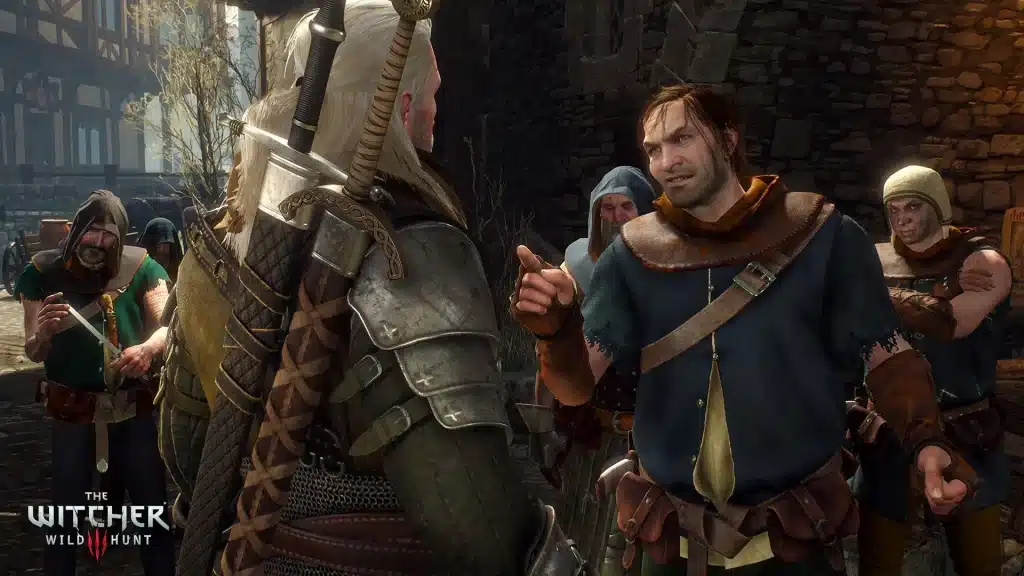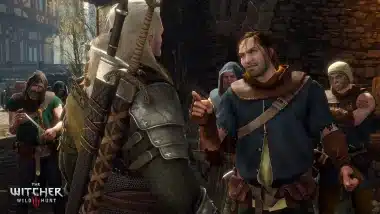CD Projekt Red’s magnum opus, The Witcher 3: Wild Hunt, is renowned for its immersive narrative and morally ambiguous choices that deeply influence the game world. Geralt of Rivia, the game’s protagonist, navigates a morally complex landscape where decisions have far-reaching consequences, presenting players with intricate ethical dilemmas. Delving into the psychological aspects of decision-making within the game unveils the profound impact it has on both player experience and moral introspection.

The Psychological Impact of Decision-Making in The Witcher 3: Wild Hunt
Initial Encounters and Moral Grey Areas
The Witcher 3 introduces players to a world entrenched in moral ambiguity from the outset. The choices presented often lack clear-cut distinctions between good and evil, blurring the lines between right and wrong. Geralt’s decisions aren’t merely about morality but involve navigating through layers of political intrigue, personal relationships, and societal upheavals. This complexity fosters a sense of moral weight, compelling players to contemplate the repercussions of their choices beyond immediate outcomes.
Consequence and Ripple Effects
The game’s narrative intricately weaves the consequences of decisions into its fabric, with choices influencing not just immediate outcomes but also shaping the game’s world state and character destinies. Each decision has a ripple effect, altering relationships with various factions, impacting future quests, and even determining the game’s multiple endings. This interconnectedness of choices mirrors real-life decision-making, emphasizing the butterfly effect of one’s actions.
Moral Relativism and Player Agency
The Witcher 3 challenges traditional notions of morality by presenting situations where no choice is truly devoid of moral compromise. Players are confronted with dilemmas where every decision involves sacrificing something, often leading to morally conflicting outcomes. This evokes a sense of moral relativism, where the ‘lesser evil’ becomes the guiding principle. Such morally gray scenarios compel players to weigh their personal beliefs against the context of the game world, fostering a deeper sense of agency.
Personal Impact and Emotional Investment
As players progress, the weight of their decisions amplifies. Emotional investment in the characters and the game world intensifies the psychological impact of choices. The relationships cultivated throughout the journey imbue decisions with emotional stakes, making the ramifications more profound. The empathy developed for the characters translates into a heightened sense of responsibility, amplifying the psychological burden of decision-making.
Ethical Reflection and Role-Playing
The Witcher 3 encourages players to adopt Geralt’s role, allowing them to embody a character with his unique moral code. This role-playing aspect prompts individuals to make decisions not based solely on personal beliefs but also on the principles they perceive Geralt upholding. Players find themselves contemplating what Geralt, as a character, would deem just or ethical, fostering introspection about their own moral compasses.
Impact on Player Behavior
The game’s morally intricate choices often lead players to assess their decision-making in the real world. The exposure to complex ethical dilemmas in The Witcher 3 can influence players’ perceptions of morality, shaping their understanding of nuanced decision-making and the repercussions of actions. This extends beyond the confines of the game, potentially altering players’ perspectives on ethical considerations in their everyday lives.
Evolution and Legacy
The Witcher 3’s legacy extends beyond its immersive gameplay. Its handling of morally complex decisions has set a benchmark for narrative-driven RPGs. In subsequent titles and other games within the genre, developers have sought to replicate the depth of moral choice seen in The Witcher 3, acknowledging its impact on player engagement and the potential for fostering moral reflection in gaming.
Continued Impact on Gaming Narrative
The game’s success has sparked a renaissance in narrative-driven gaming, where players expect deeper moral quandaries and consequential decision-making. Developers recognize the significance of integrating complex moral choices into their narratives, aiming to replicate the emotional and psychological engagement that The Witcher 3 achieved.
Community Discourse and Analysis
The depth of ethical dilemmas in The Witcher 3 has stimulated extensive community discussions and analyses. Players share experiences, debate the morality of decisions, and reflect on the game’s impact on their perceptions. This ongoing discourse underscores the game’s ability to provoke critical thinking and ethical contemplation within its player base.
Conclusion
The Witcher 3: Wild Hunt transcends the realm of gaming, becoming a testament to the transformative potential of intricate decision-making in virtual worlds. Its morally complex choices delve deep into the psyche of players, fostering introspection, moral reflection, and critical thinking. The game’s legacy lies not only in its captivating narrative but also in its ability to prompt players to confront their own ethical principles, leaving an indelible mark on the gaming landscape.


